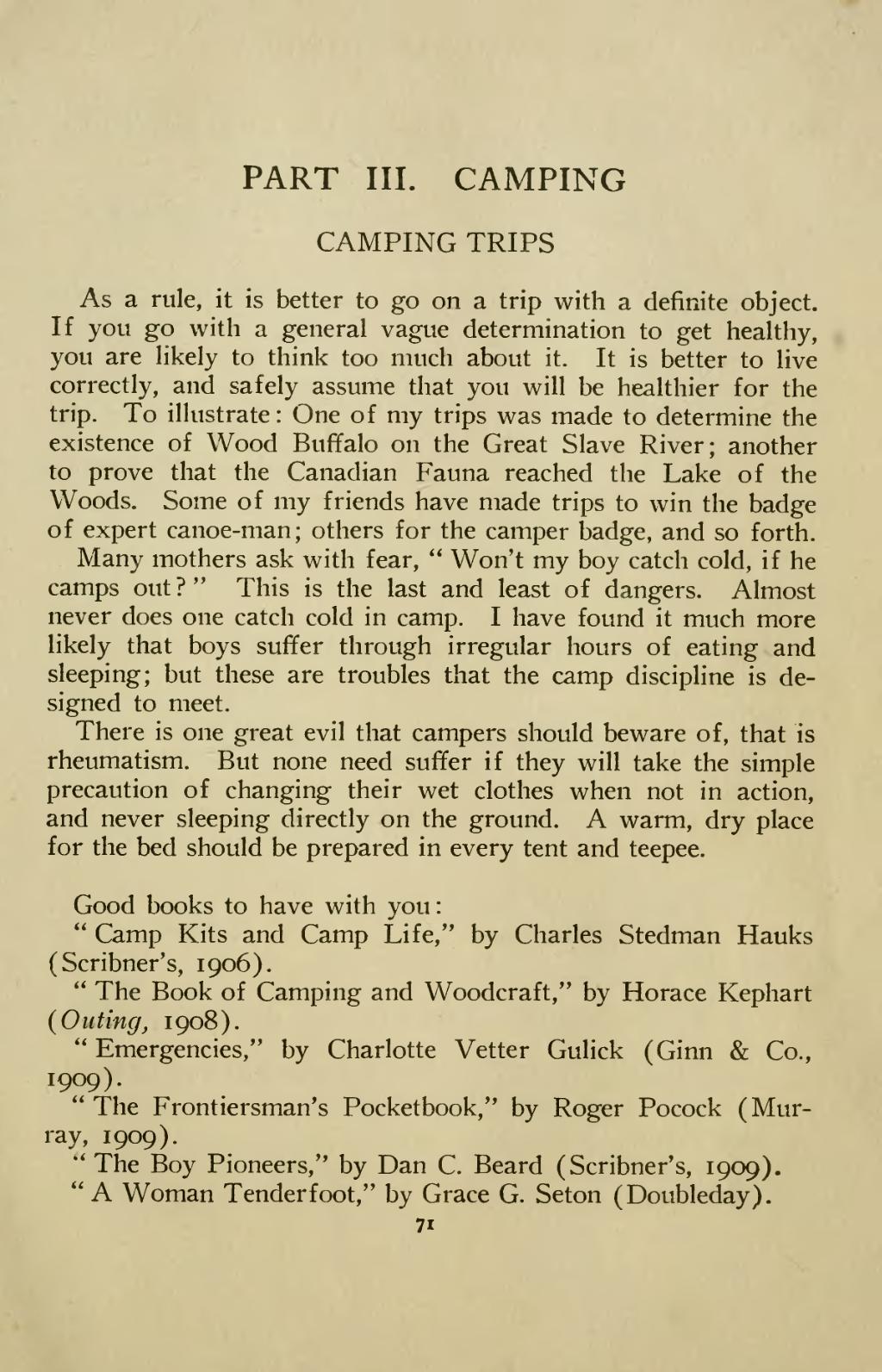PART III. CAMPING
CAMPING TRIPS
As a rule, it is better to go on a trip with a definite object. If you go with a general vague determination to get healthy, you are likely to think too much about it. It is better to live correctly, and safely assume that you will be healthier for the trip. To illustrate : One of my trips was made to determine the existence of Wood Buffalo on the Great Slave River; another to prove that the Canadian Fauna reached the Lake of the Woods. Some of my friends have made trips to win the badge of expert canoe-man; others for the camper badge, and so forth.
Many mothers ask with fear, "Won't my boy catch cold, if he camps out?" This is the last and least of dangers. Almost never does one catch cold in camp. I have found it much more likely that boys suffer through irregular hours of eating and sleeping; but these are troubles that the camp discipline is designed to meet.
There is one great evil that campers should beware of, that is rheumatism. But none need suffer if they will take the simple precaution of changing their wet clothes when not in action, and never sleeping directly on the ground. A warm, dry place for the bed should be prepared in every tent and teepee.
Good books to have with you:
"Camp Kits and Camp Life", by Charles Stedman Hauks (Scribner's, 1906).
"The Book of Camping and Woodcraft", by Horace Kephart (Outing 1908).
"Emergencies", by Charlotte Vetter Gulick (Ginn & Co., 1909).
"The Frontiersman's Pocketbook," by Roger Pocock[1] (Murray, 1909).
"The Boy Pioneers", by Dan C. Beard (Scribner's, 1909).
"A Woman Tenderfoot", by Grace G. Seton (Doubleday).
